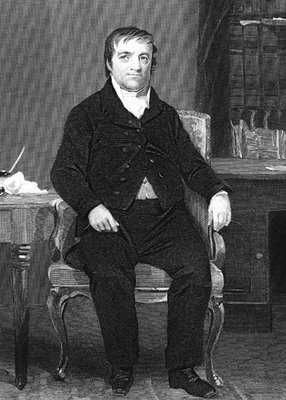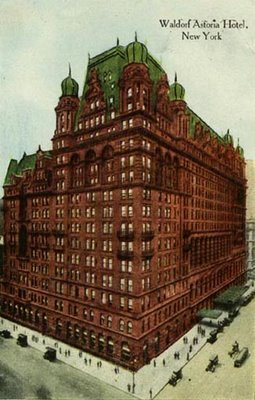Amerika’s First Millionär

Johann Jakob Astor (his mother probably called him 'Hansi') made his money off fur, protectionism, and the ever popular real estate...after showing up in North America with a few bucks and a few flutes in 1784. He later financed, among other things, the first US community on the Pacific coast, discovery of the South Pass through the Rockies, Audubon, Poe, and the New York Public Library.

Astor hailed from the small village (Dörfchen) of Walldorf, near the Rhine in the northeast corner of Baden-Württemberg, also the home of SAP (the current city architect of Walldorf is an Astor, Dieter). He wasn’t directly responsible for the salad (that was the maître d’), or even the hotel, that was great-grandson John Jacob Astor IV (who went down with the Titanic, after deciding to return from an extended trip to Europe due to his wife’s pregnancy—they had gone there hoping to wait out the negative publicity stemming from the fact that she was 30 years younger than he was). No, he was not even the founder of the school (that was that kook Rudolf Steiner...a Germanic kook and therefore highly touted in this country, now an American kook, say, Mr. Hubbard, scares folks here just as much as anyone—more, actually).

The first Waldorf school, complete with racist theories which come with the territory when you decide to make up the world in your own head, was commissioned by the Zigarettenfabrik Waldorf-Astoria in Stuttgart in 1919. They used to include trading cards with packs of cigarettes between world wars, subject matter ranged from the German colonies to, you know, the Wehrmacht.



